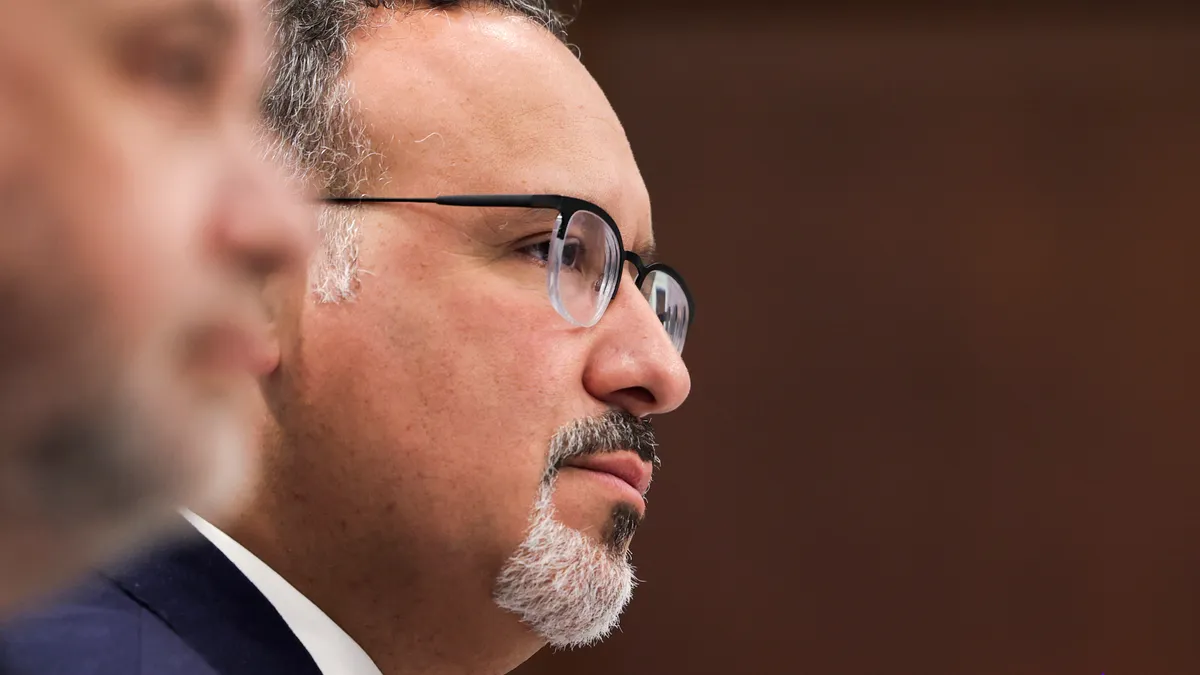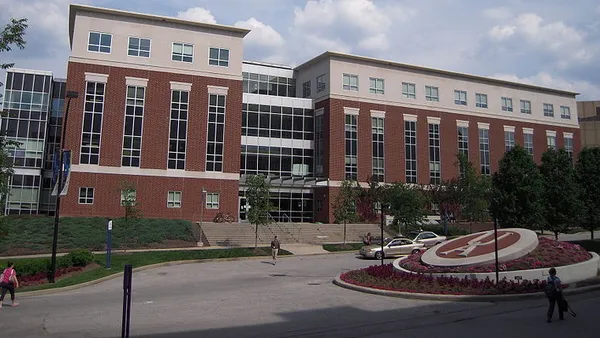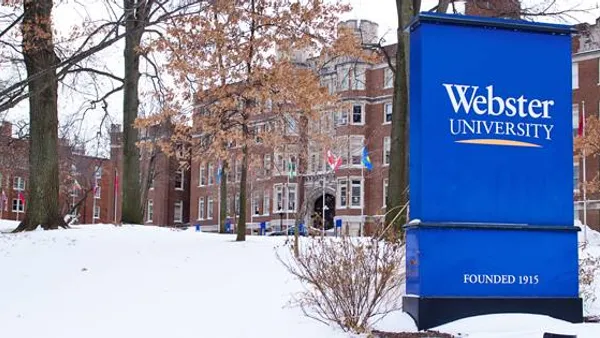Dive Brief:
- Bay State College will lose its accreditation at the end of August, with officials saying the Massachusetts for-profit failed to prove it’s in sound enough financial shape to continue operating.
- The New England Commission of Higher Education, or NECHE, said in a letter Monday that it voted to revoke Bay State’s accreditation earlier this month. The accreditor had grown concerned about “dramatic enrollment declines,” a larger-than-expected budget deficit and new oversight from the U.S. Department of Education, NECHE President Lawrence Schall wrote in the letter.
- Bay State will “remain open minimally” through Aug. 31, its interim president, Jeff Mason, wrote in a letter. The college’s governing board has voted to appeal the decision to yank its accreditation, Mason wrote.
Dive Insight:
Accreditation loss often spells a college’s demise, for without it, an institution cannot receive or distribute federal financial aid.
It’s a rare move — more often, accreditors put colleges in their charge on probation, giving them the period to improve before pulling the status entirely. Having accreditation rescinded means regulators determined a college has fallen far short meeting governance and financial standards.
Bay State’s accreditor NECHE notified the for-profit college in May 2022 it was on probation, saying it had not met two of its standards on governance and institutional resources.
After NECHE officials visited the Boston-based campus for three days in November, the organization voted this month to withdraw accreditation. It set a date of Aug. 31 for the accreditation loss to allow as many students as possible to complete their degrees.
However, Bay State’s troubles began long before the accreditor’s involvement.
The for-profit institution’s enrollment has been sliding for years, reaching a little less than 350 students as of fall 2021, compared to around 1,200 in fall 2010, according to federal data.
In 2019, Bay State paid $1.1 million to settle accusations by the Massachusetts attorney general that it telemarketed illegally and promoted inaccurate job placement data. This occurred before Chinese holding company Ambow Education bought Bay State in 2017, the attorney general said at the time.
Since then, Ambow has absorbed millions of dollars of the colleges’ expenses as it operates on a deficit.
More recently, evidence has surfaced of Ambow’s own financial struggles, including declining revenue and its chief financial officer abruptly stepping down.
Bay State students have alleged in recent local news reports they have been charged erroneously, including for classes that didn’t exist or were canceled without notice. The college said this month it would cut several academic programs, in part an attempt to stem bleeding enrollment.
The alleged mismanagement has been so significant that it drew federal policymakers’ attention.
In December, the Education Department deemed Bay State so financially at risk that it said it would no longer front the college money for student financial aid. Instead, Bay State has to use its own money to provide students aid and then seek reimbursement from the department.
Sen. Elizabeth Warren and Rep. Ayanna Pressley, both Massachusetts Democrats, this month called on NECHE to carefully scrutinize Bay State’s accreditation following reports of its actions, including missed rent payments and payroll for employees.
Warren posted on Twitter on Monday that she’s happy the accreditor is holding Bay State accountable.
Schall, NECHE’s president, referenced the new Education Department oversight and pointed out the college’s operating deficit was $500,000 more last year than was projected. He also mentioned Bay State has not, as of last week, finalized agreements that would allow students to transfer seamlessly to other institutions to finish their programs.
Bay State’s interim president, Mason, wrote in his letter students can withdraw from the college for the coming semester at no charge. He wrote that students who intend to complete their degree by May or August will be unaffected.
The college will give those who graduate after August transfer options, Mason wrote.
He wrote this was not the outcome the college expected.
“Frankly, we are heartbroken," he wrote.














